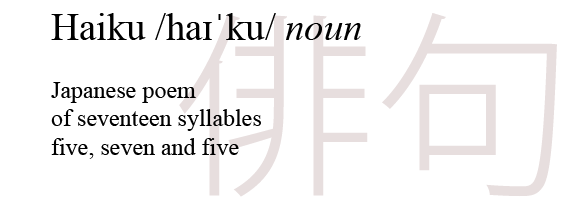Conference Haiku
Kate Cross uses haikus to distil the essence of a talk and then tweets them into the world for everyone to enjoy. We ask her about this creative form of science communication.

Cultured Scene: The haikus are a creative way to express thoughts in a very short form. How did you come up with the idea to use haikus to summarise presentations? Is it a way for you to remember the most important details of a talk?
Catharine Cross: I started tweeting conference haikus at EHBEA (under #ehbea2016 and #ehbea2017). I’d been inspired by Hanna Kokko who has haiku descriptions of her papers online (http://www.kokkonuts.org). It definitely helps me to focus and to remember a talk.
How are you doing it so fast? I think that many people might ponder quite some time about the phrasing.
I have always loved playing with words. I’ve been writing poems of various kinds since I was a kid (mostly terrible, lost to posterity, or both), so I’ve had a lot of practice. Also, sometimes I tweet them before I’m really happy with them, because it’s time for the next talk. I think live-tweeting a conference is a brilliant way to practice writing to a schedule!
Do you use haikus for other things as well? Or is this a conference only thing?
Sometimes I write them just for fun, or to summarise a paper of my own, or to vent about sexism in academia. It’s a very versatile form! There are quite a few people posting #sciencehaiku on twitter and I think it’s a great way write about science.
Is there a haiku you are especially proud of, or one that you’ve got a lot of responses to? (are they the same?)
I think my favourite from the last conference is this one, which described Nathan Nunn’s plenary on (among other things) the after-effects of slavery on people living in Africa now. I feared that a tweet- haiku might be seen as too glib a response for a talk on something so serious. But I’ve argued for a long time that we can – and should – use playful formats to talk about serious issues. So I did.

Catharine Cross is a Lecturer in Comparative & Evolutionary Psychology at the University of St Andrews. Her main research interest is in sex differences in human social behaviour. @CatharineCross
About the author
Post-doctoral Fellow at UPenn
